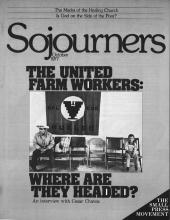Is God, as some liberation theologians have recently suggested, biased in favor of the poor? The Bible has a clear answer. God is not partial. God has the same loving concern for each person created. For precisely that reason God cares as much for the weak and disadvantaged as for the strong and fortunate. By contrast with the way you and I, as well as the comfortable and powerful of every age and society, always act toward the poor, God seems to take a special interest in the poor and oppressed.
Might there in fact be some important sense in which one should say that God is on the side of the poor? I want to examine four strands of biblical teaching related to this question.
The Bible clearly and repeatedly teaches a fundamental point that we have often overlooked. At the crucial moments when God displayed mighty acts in history to reveal God's nature and will, God also intervened to liberate the poor and oppressed.
The Exodus
God displayed power at the Exodus in order to free oppressed slaves. When God called Moses at the burning bush, God's intention was to end suffering and injustice: "I have seen the affliction of my people who are in Egypt, and have heard their cry because of their taskmasters; I know their sufferings, and I have come down to deliver them out of the hand of the Egyptians" (Exodus 3:7-8).
Now of course the liberation of oppressed slaves was not God's only purpose in the Exodus. God also acted because of the covenant with Abraham, Isaac, and Jacob. God wanted to create a special people to whom God's self could be revealed. The liberation of a poor, oppressed people, however, was right at the heart of God's design (Exodus 6:5-7).
Read the Full Article

